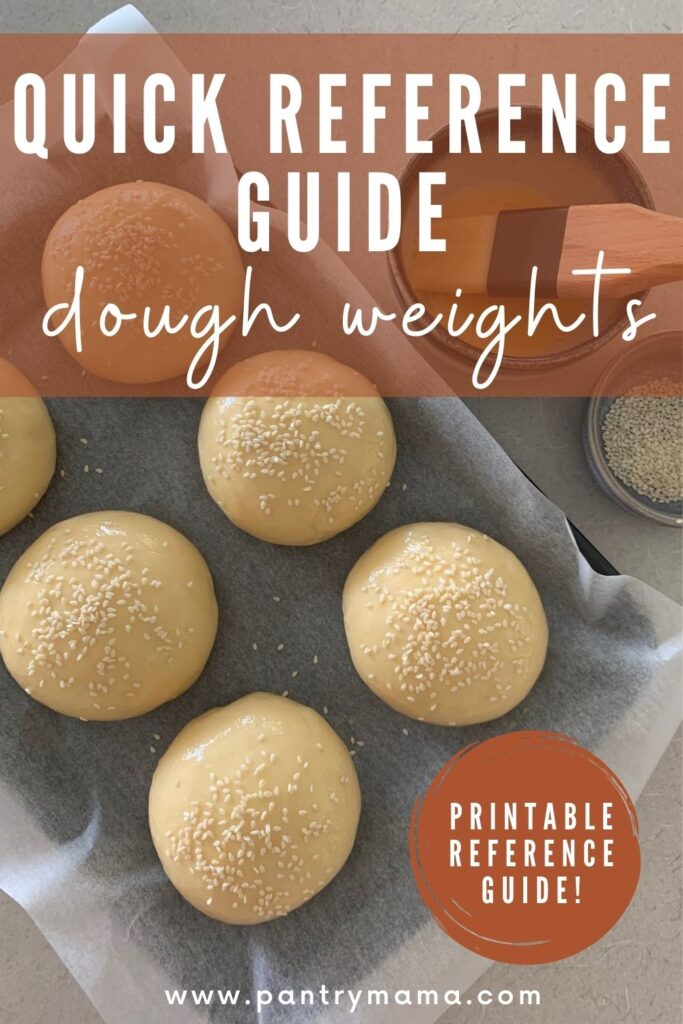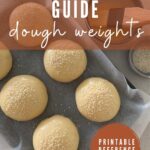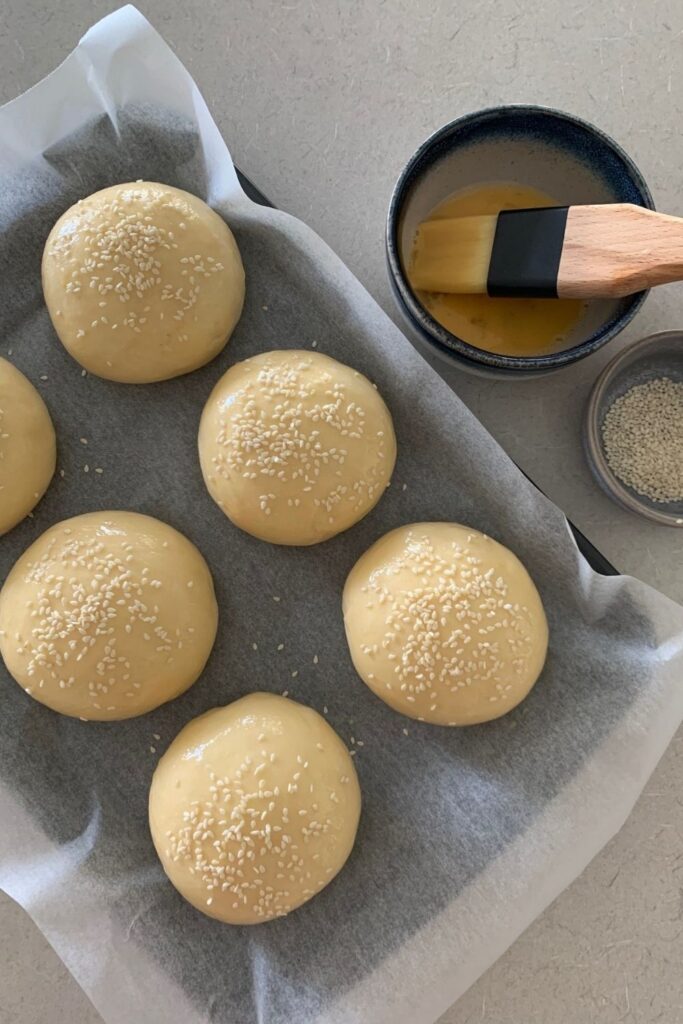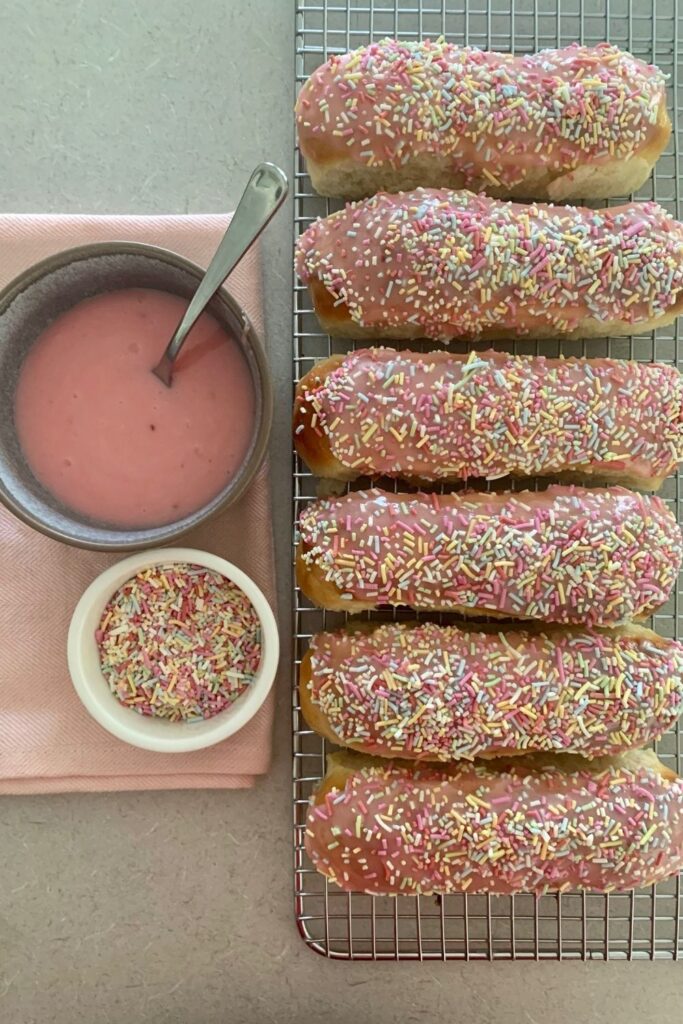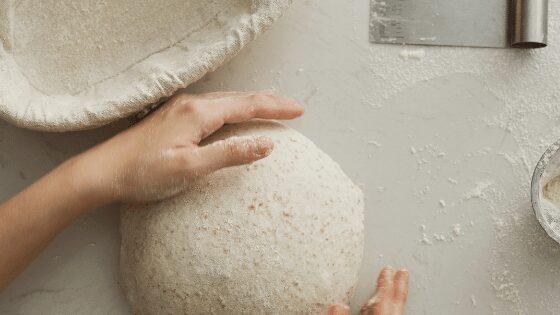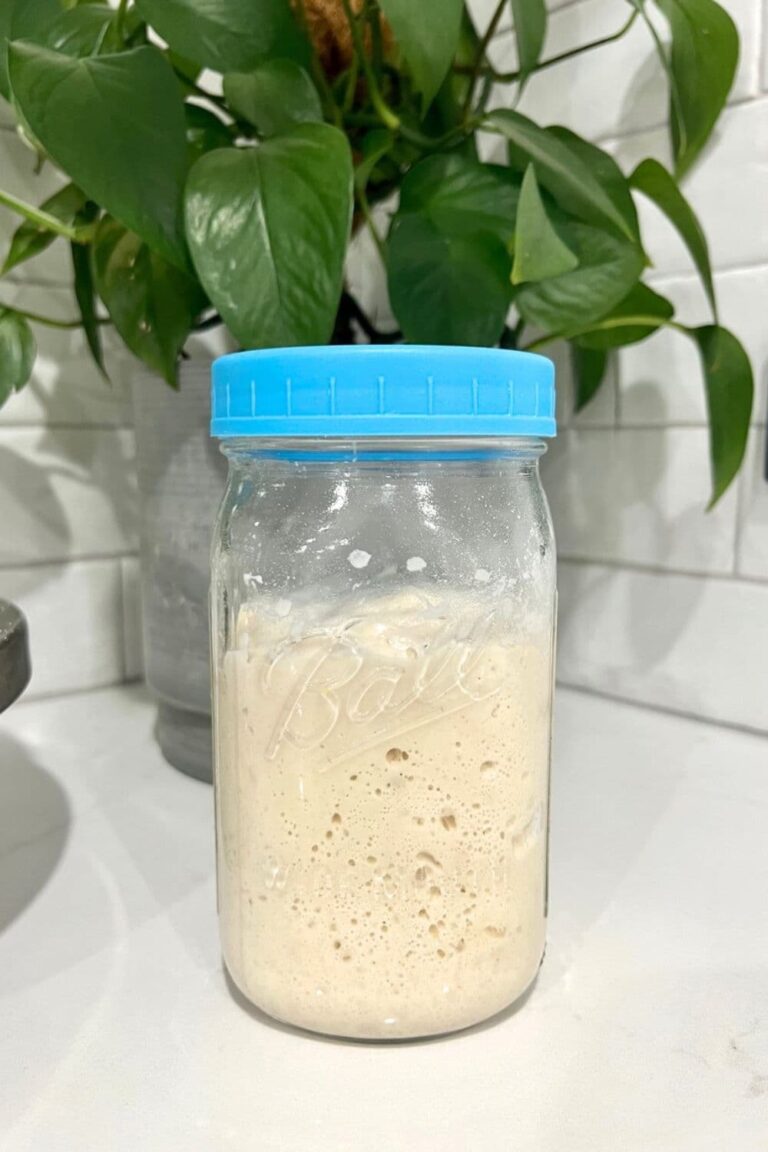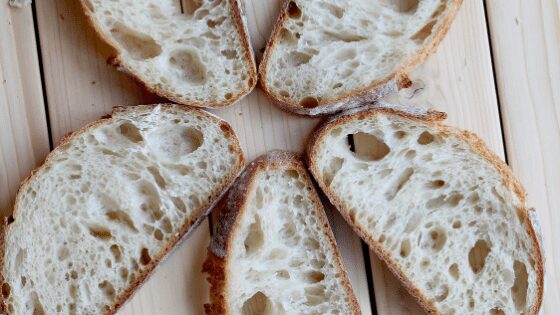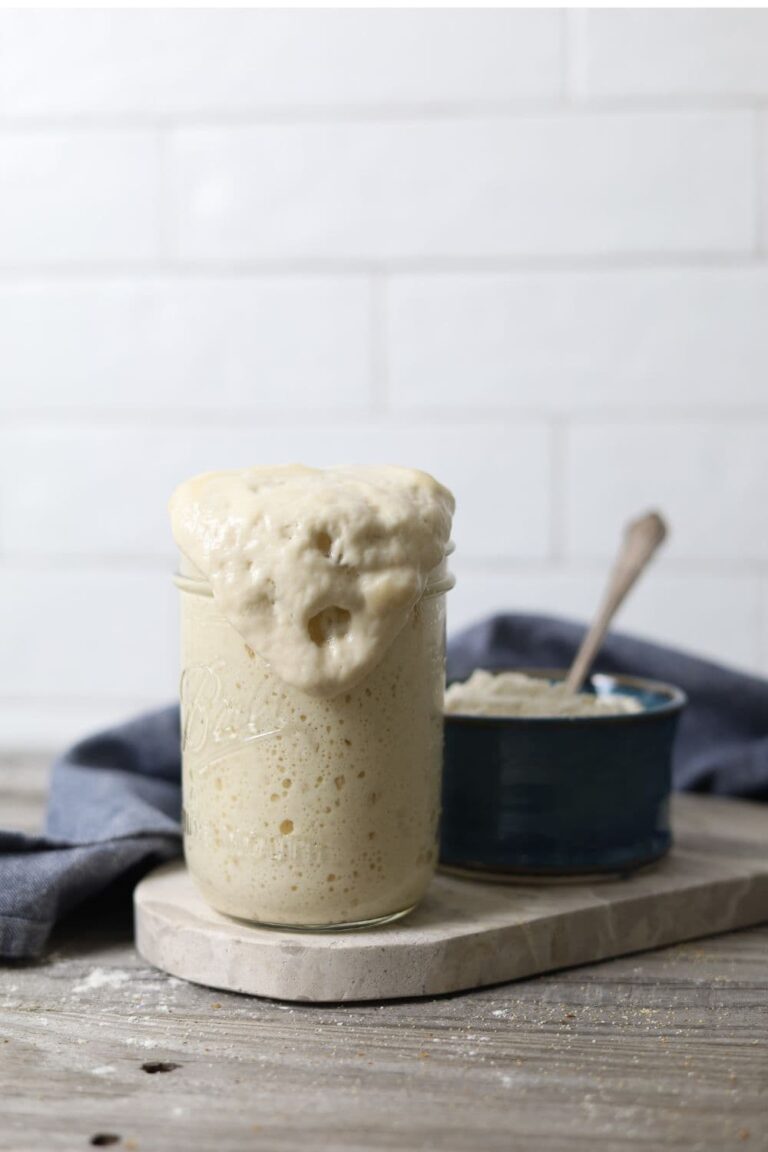Dough Weights for Common Bread Shapes [with printable chart]
This post may contain affiliate links.
Here's a quick reference list with dough weights for common bread shapes.
Using this list, you can learn the correct weight for common baked items when making sourdough.
It can be tricky to know just how big to make things, particularly bread rolls, pizzas etc to ensure you don't end up with super sized rolls or a tiny pizza.
This reference guide will help you get it right every time! There's even a handy printable version you can download at the end of the post.
When you are making sourdough rolls, muffins, baguettes etc, the best and easiest way to produce a uniform result.
While this guide is super handy, you can also work out the dough weight of individual pieces by taking the total dough weight and dividing it by the number of pieces you want.
For example, if your total dough weight is 1080g and you want 10 rolls, you would need to make your rolls 108g each.
But knowing the average sizes does help to ensure you don't end up with giant pretzels or flat muffins.
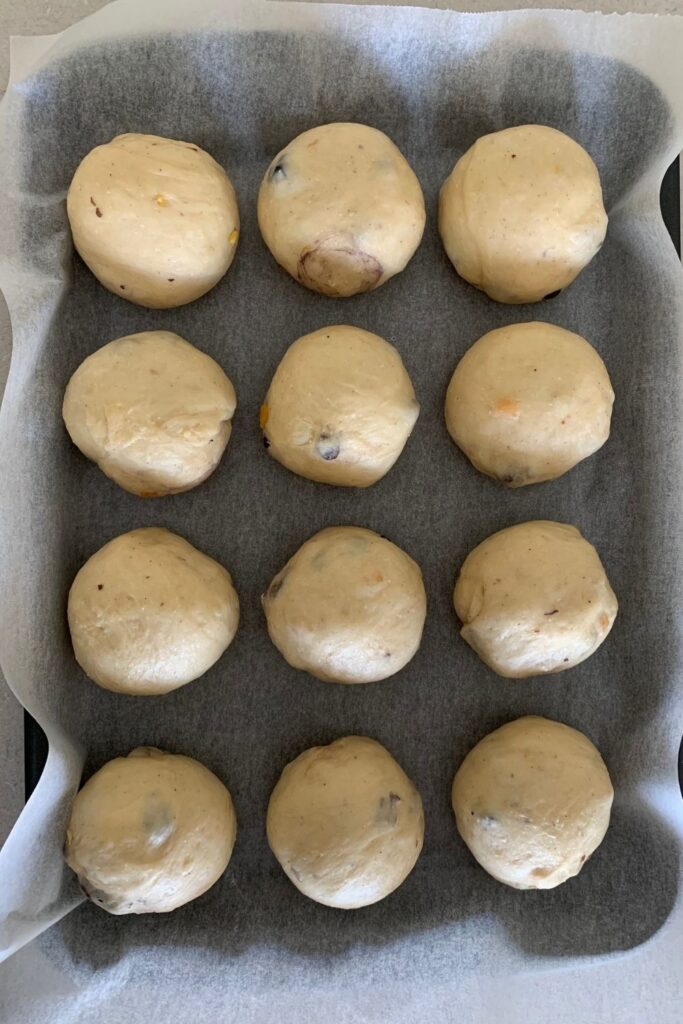
How to Calculate Dough Weight?
Dough weight is the total weight of the ingredients that went into your dough, including your sourdough starter.
It's very easy to calculate.
Of course, you can just weigh your dough once it's finished mixing (or rising). However sometimes that's not possible.
So you can just add up the weights of your ingredients.
My sourdough discard hamburger buns have a dough weight of approximately 1140g. This is made up of all the ingredient weights simply added together.
You can then use this dough weight to calculate exact individual dough weight for the rolls.
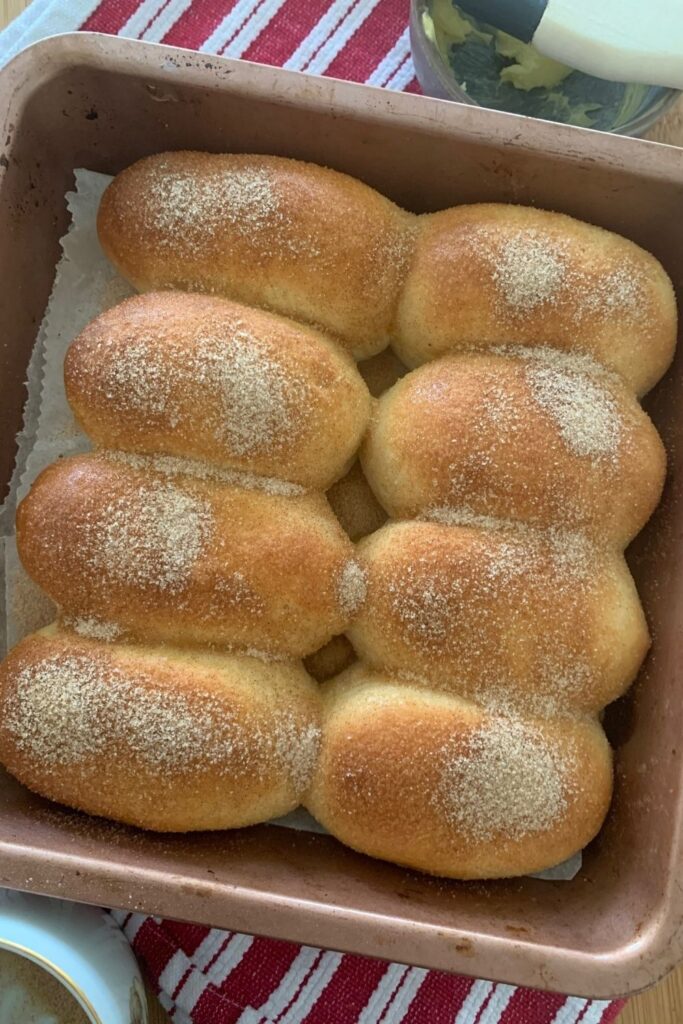
Why Is Dough Weight Important When Baking?
The weight of your dough is important when baking because knowing the weight of your dough means that you can choose the right baking vessel.
It also means you can accurately separate the dough into specific weighted pieces to ensure consistency.
If you just guess the weight of your dough, you run the risk of choosing an incorrectly sized baking vessel (for example a bread pan, banneton or Dutch Oven).
Selecting an incorrect size baking vessel could mean that your bread bakes unevenly or comes out in an odd shape.
Baking bread rolls of all different weights on the same tray will result in inconsistency. Some will be under cooked, some will be over.
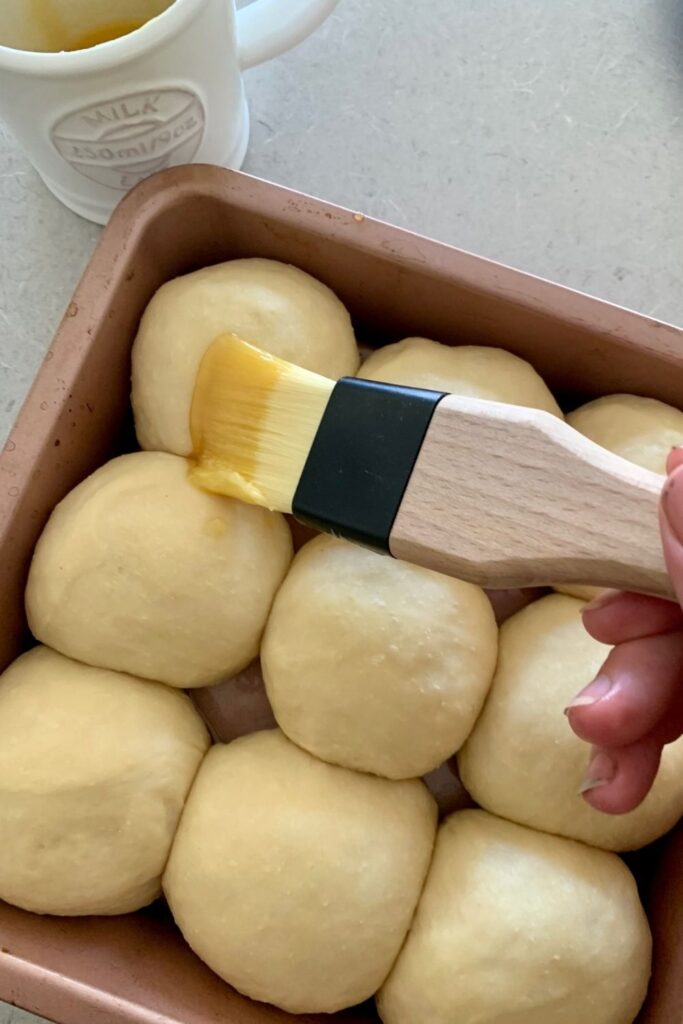
Pizza Dough Weight Chart
If you are making pizza, it's a good idea to weigh the dough to ensure you get the right amount for the number of people you're feeding.
Weighing the dough also helps ensuring you get the right thickness too.
No one likes soggy pizza, right?
Pizzas
12" pizza, personal (plate-sized) 200g (thin) - 250g (thicker)
14" pizza, thin crust, NYC style 300g
14" pizza, medium "American" crust style 550g
16" pizza, thin crust NYC style: 600g
Here's the best sourdough pizza recipe! It makes a good amount of dough and is super easy to pull together. You can even knead it in a stand mixer which makes the whole process super fast!
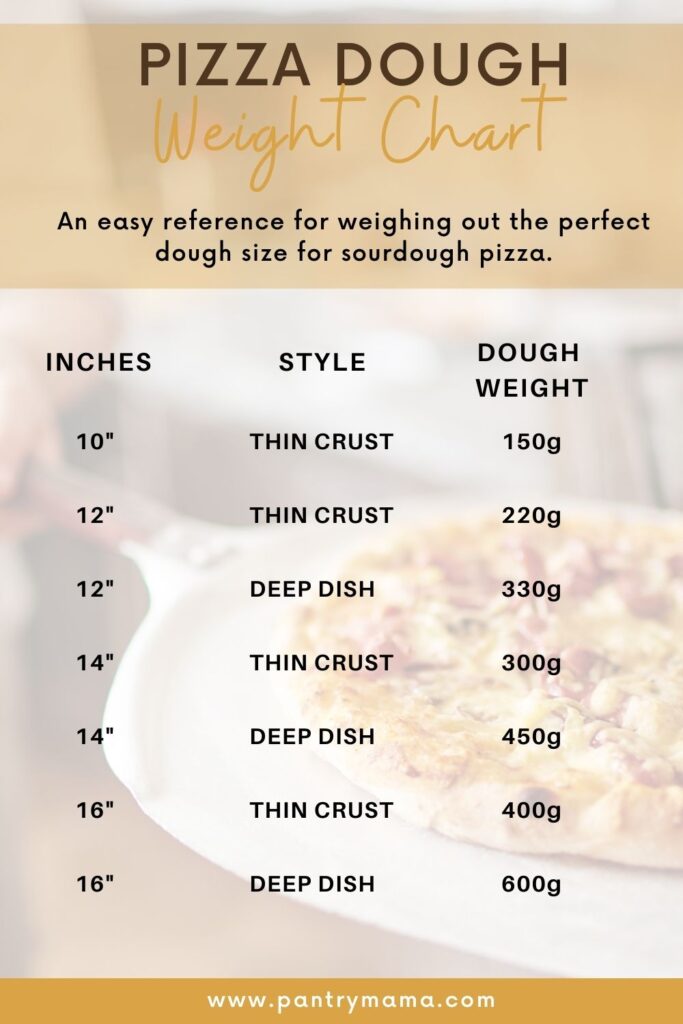
Sourdough and Rustic Loaves by Weight
As a general rule, you need to look at the equipment you have on hand as to how much your sourdough needs to weigh.
If you are just starting out, you can order a banneton and Dutch Oven to suit the recipe you've chosen. Here, you'll find a full sizing guide for bannetons and Dutch Ovens.
This is a good guide as to how much the "average" sourdough loaf weighs prior to cooking.
Obviously, dough weight will change depending on ingredients and additions.
Regular boule (or batard) of sourdough 900g - 1000g
Multigrain boule (or batard) of sourdough 1000g - 1200g
Bread Bowl sourdough 250g
Mini sourdough boule 150g
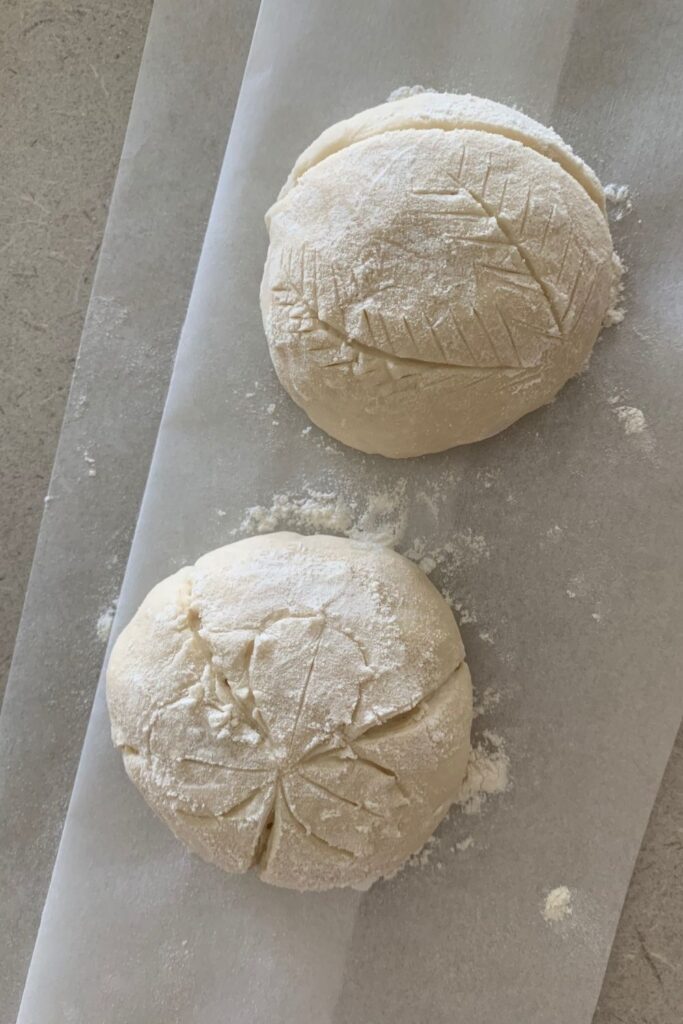
Sourdough Sandwich Loaves - Bread Pan Sizes by Dough Weight
Bread pan sizing can be confusing. There are so many combinations out there and it can be really hard to find the right size for your bread.
I have been asked many times, how much dough to put in a bread pan.
Hopefully, these measurements will make life a little easier when it comes to selecting the right size bread tin for dough weight.
The following sizes have been divided between bread pans and pullman pans.
The dough weight is based on white flour dough weight (whole wheat dough weight will be increased).
- A bread pan is a traditional loaf tin - it is open at the top allowing the dough to rise above the lip.
- A pullman pan has a lid which means that you need less dough because it cannot rise above the lip.
You can click on the description below (ie small loaf pan) and it will take you directly to a pan of that size on Amazon.
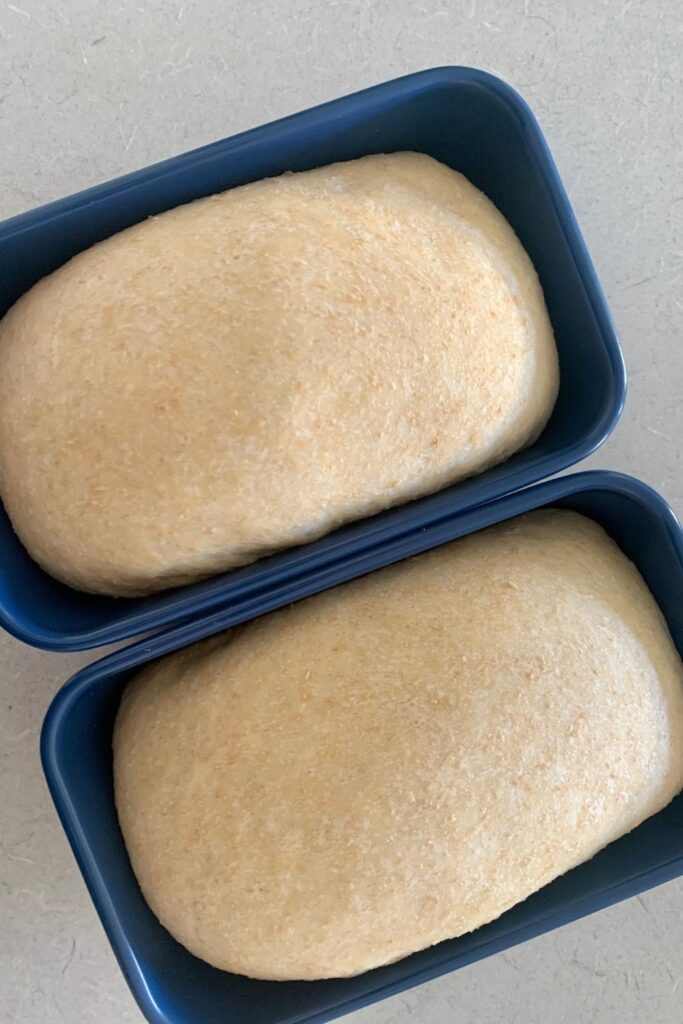
Open Bread Pans
Small loaf pan (8.5" x 4.5" x 2.75") 450g - 550g
Medium loaf pan (9.25" x 5.25"x 2.75") 800g (this would be considered "standard").
Large loaf pan (10" x 4.5" x 3") 900g - 1100g
Note that if you put more dough than advised into a smaller tin, it won't be a total disaster. If you put your dough into a smaller tin, you'll get a big rise above the lip and possibly a "mushroom" shaped loaf.
If you put the dough into a larger tin, you'll get a more standard looking loaf and it may not rise above the lip.
That's the great thing about loaf pans, they give you some room to move and flexibility in the sourdough making process.
If you'd prefer deeper pans, these pans add extra volume and a taller loaf. Using these tins will mean that you get a straighter loaf with a small dome at the top, rather than the mushroom top.
If you are looking for a deeper loaf pan, this one is fantastic and will hold this Easy Sourdough Discard Sandwich Loaf recipe with ease.
You can see how to bake a traditional loaf of sourdough in a bread pan here.
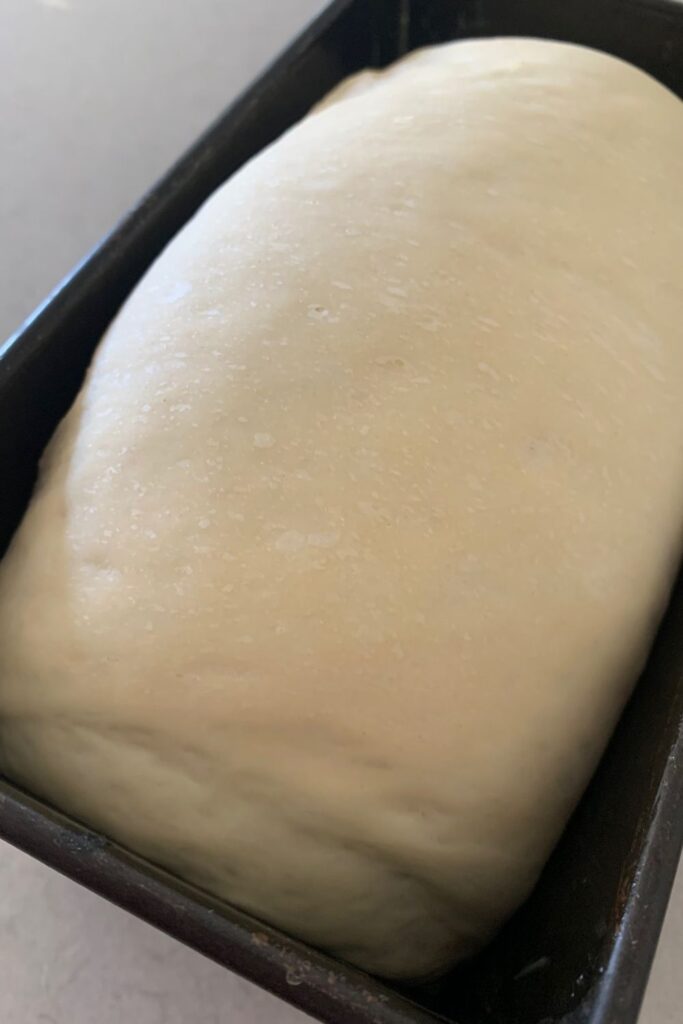
Pullman Pans
Small pullman pan (4.2" x 7.7" x 4.4") 450g
Standard pullman pan (9" x 4" x 4") 750g - 850g
Large pullman pan (13" x 4" x 4") 900g - 1000g
Extra large pullman pan (13.58" x 5.39" x 4.72") 1100g - 1200g
Dough Weights for Bread Rolls & Burger Buns
Depending on the type of rolls you're making, these weights will ensure that you get the perfect size every time!
It's really important when making rolls to ensure they are all the same size so that they cook evenly. Using a scale is the best way to ensure uniformity when making sourdough buns and rolls.
Savory Buns and Rolls
Hamburger Buns (large)140g
Hamburger Buns (small) 90g
Foot Long Sub (12") 350g
Hot Dog Rolls 100g
Soft Dinner Rolls 50g
Hawaiian Rolls 50g
Sweet Buns and Rolls
Cinnamon Rolls 50g (dough weight only, not including filling)
Finger Buns 100g
Hot Cross Buns 80g (50g for a smaller bun)
Dough Weights for Other Baked Goods
There are many other sourdough baked good you might need to weigh including English Muffins, pretzels, donuts and bread sticks.
English Muffins 80g
Pretzels 70g
Bagels 100g (75g for a smaller bagel)
Donuts 50g - 65g
Bread Sticks (Grissini) 25g - 30g
Flat Breads / Tortillas 40g - 50g
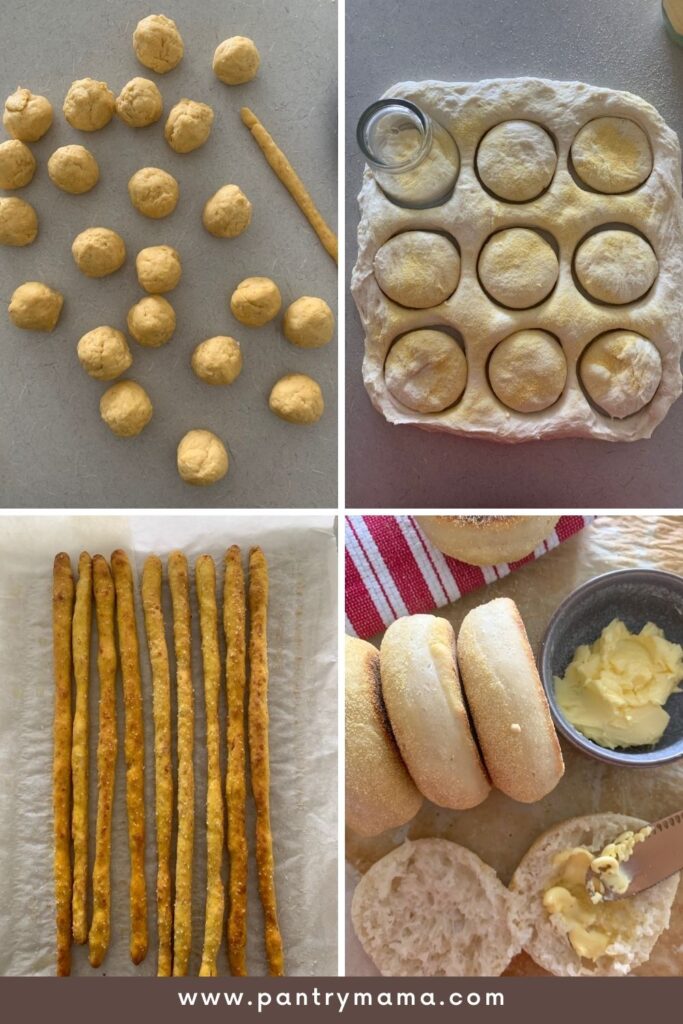
Want a quick reference list of dough weights to print out and refer to? You can download a printable copy here:
Further Reading
If you enjoyed this article about common dough weight for common bread shapes, you might enjoy these ideas:
- Weighing all of the ingredients for sourdough is so important to the success of both your starter and your bread and other baked goods.
- This banneton sizing guide is super handy for ensuring you get the right one for your dough weight.
- Wondering if the amount of sourdough starter you use actually makes a difference? You might be surprised at the answer.
